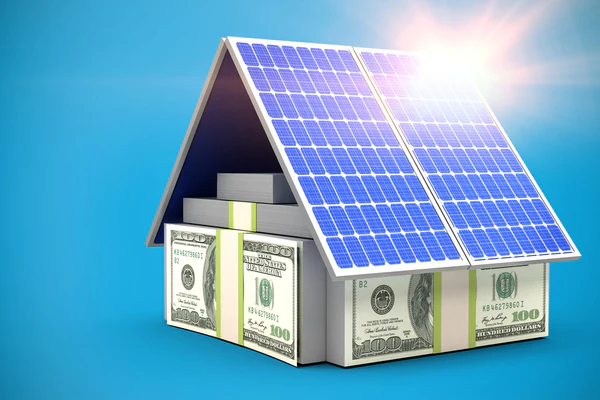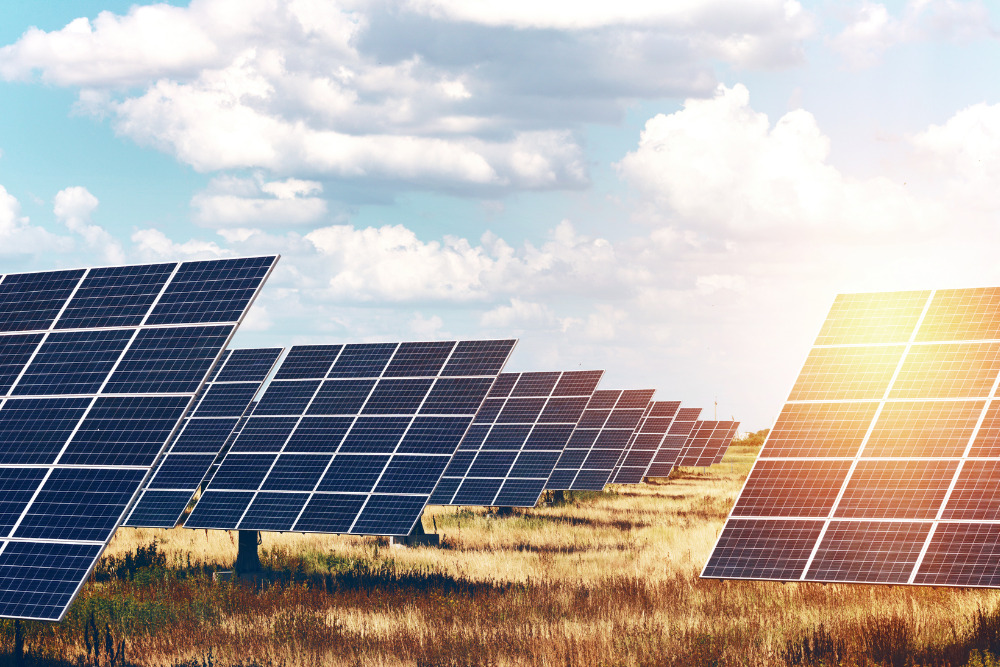Why Choose Simply Solar Illinois for Green Energy Solutions?
Why Choose Simply Solar Illinois for Green Energy Solutions?
Blog Article
Exactly How Solar Energy Can Help You Conserve Cash and Reduce Your Carbon Footprint
The assimilation of solar energy right into your power profile offers an engaging possibility for both economic savings and environmental stewardship. By taking advantage of the sunlight's power, home owners can dramatically decrease their monthly utility expenditures while additionally securing against the unpredictability of future power expenses. The change to solar adds to a significant decline in carbon discharges, lining up individual financing with broader ecological goals. As various federal government rewards appear, the inquiry arises: how can one properly navigate the initial financial investments and ongoing advantages of solar technology to optimize both financial and environmental gains?
Recognizing Solar Power Financial Savings
While the transition to solar power frequently includes a first financial investment, comprehending solar energy financial savings is critical for property owners and organizations alike. Solar power systems can dramatically minimize electricity expenses by taking advantage of the sunlight's power, translating into considerable long-lasting economic advantages. By generating their own electrical power, individuals decrease dependence on grid power, which is subject to varying costs. These financial savings can collect gradually, often leading to a rapid return on investment.
Furthermore, solar power systems might qualify for various financial motivations, consisting of tax credit reports and rebates, even more enhancing their cost-effectiveness. The schedule of internet metering enables users to market excess energy back to the grid, creating an added profits stream. These elements add to the total savings related to solar power.

In enhancement to guide financial savings, solar power provides the added benefit of enhancing property value. Homes geared up with solar panels are typically a lot more appealing to buyers, as they guarantee reduced energy expenses - Simply Solar Illinois. Understanding these elements is vital for anyone taking into consideration solar power, as it highlights not just the possible economic gains, however also the broader environmental and economic benefits of embracing renewable resource remedies
Initial Expenses vs. Long-Term Benefits
When evaluating solar energy, it is important to consider the first expenses against the lasting benefits. The upfront financial investment for solar panels, setup, and related equipment can be significant, often varying from $15,000 to $30,000, depending on the system dimension and home energy needs. This first expenditure might discourage some house owners; nevertheless, it is crucial to take into consideration the prospective savings gradually.
Once installed, solar energy systems can considerably lower or even remove regular monthly electricity costs, causing substantial long-lasting economic benefits. Studies indicate that property owners can save anywhere from $10,000 to $30,000 over the life expectancy of their planetary system, usually 25 years. In addition, many states supply incentives, tax credits, and refunds that can counter first prices, making solar much more easily accessible.

Minimizing Your Carbon Footprint
Lowering your carbon footprint is an important factor to consider in today's environmentally mindful culture, and embracing solar energy is one of one index of the most effective strategies to accomplish this objective. Solar power is a tidy, renewable resource that dramatically reduces dependence on fossil fuels, which are significant factors to greenhouse gas emissions.

Moreover, the widespread fostering of solar technology urges the development of green tasks and supports advancements in energy storage and efficiency. The even more people and organizations spend in solar power, the higher the collective decrease in carbon emissions, promoting a cleaner ambience for future generations.
Government Motivations and Rebates
Adopting solar energy not just benefits the atmosphere yet can also cause substantial financial cost savings, specifically with the availability navigate to this site of government motivations and discounts. Different federal, state, and neighborhood programs are developed to motivate house owners and companies to spend in solar energy systems, making the transition a lot more cost effective.
Among one of the most famous incentives is the Federal Investment Tax Credit Report (ITC), which permits solar system owners to subtract a significant percent of the installation costs from their federal taxes. This motivation has been critical in minimizing the ahead of time expenditures related to solar power systems. Furthermore, several states supply their very own tax obligation credits, grants, and rebates that can even more improve cost savings.
Moreover, some city governments offer real estate tax exemptions for solar installations, making sure that house owners do not deal with boosted residential property tax obligations as a result of their sustainable energy investments. Energy firms may additionally supply motivations, look at this now consisting of web metering and feed-in tariffs, which permit solar power customers to market excess power back to the grid.
Selecting the Right Solar System
Picking the proper solar system is vital for taking full advantage of energy efficiency and economic benefits. The decision depends upon several factors, including power needs, spending plan, and offered space. Home owners ought to start by evaluating their electrical power intake to identify the system dimension required for ideal performance.
Next, consider the different sorts of solar innovations available. Simply Solar Illinois. Solar (PV) panels are one of the most typical, transforming sunlight straight right into electrical energy, while solar thermal systems concentrate on heating water. Each type has distinctive advantages relying on individual demands
Spending plan considerations are also paramount. Initial installment costs can vary substantially, so it is necessary to contrast quotes from numerous carriers and explore financing alternatives. Government rewards and discounts can further decrease the monetary worry, making solar systems a lot more accessible.
Conclusion
In recap, solar power offers a practical option for attaining substantial cost financial savings while simultaneously minimizing carbon emissions. The initial investment, though considerable, returns significant lasting economic benefits, with prospective financial savings varying from $10,000 to $30,000 over 25 years. In addition, the ecological benefits of solar power add to sustainable techniques critical for combating environment adjustment. Federal government motivations boost the usefulness of solar innovation adoption, encouraging a change towards a cleaner, a lot more economically effective energy resource.
Report this page